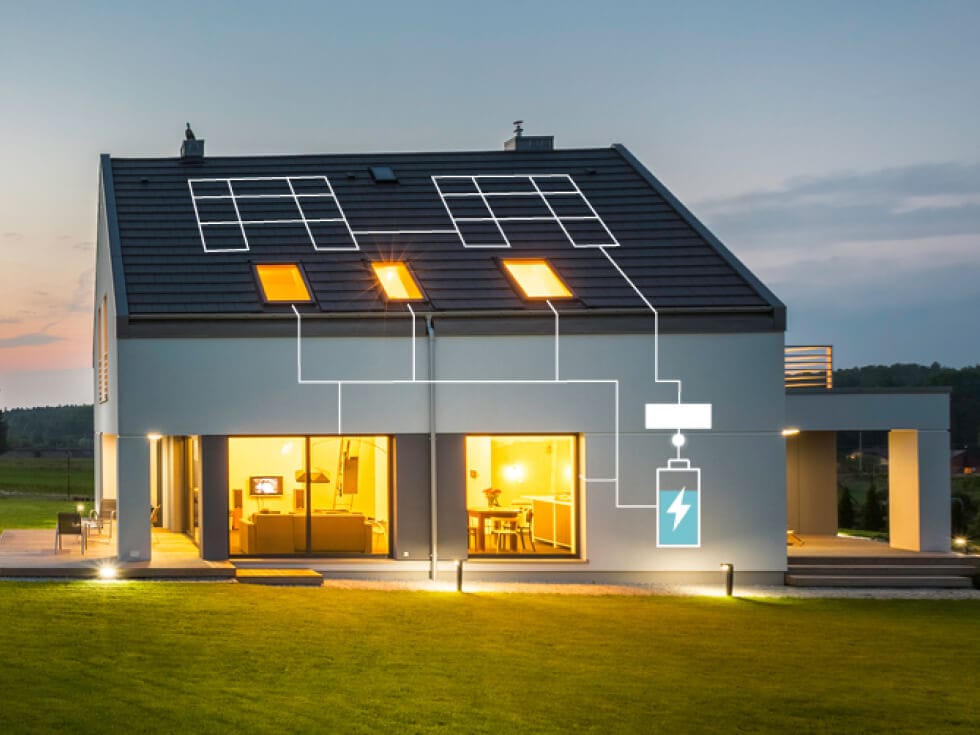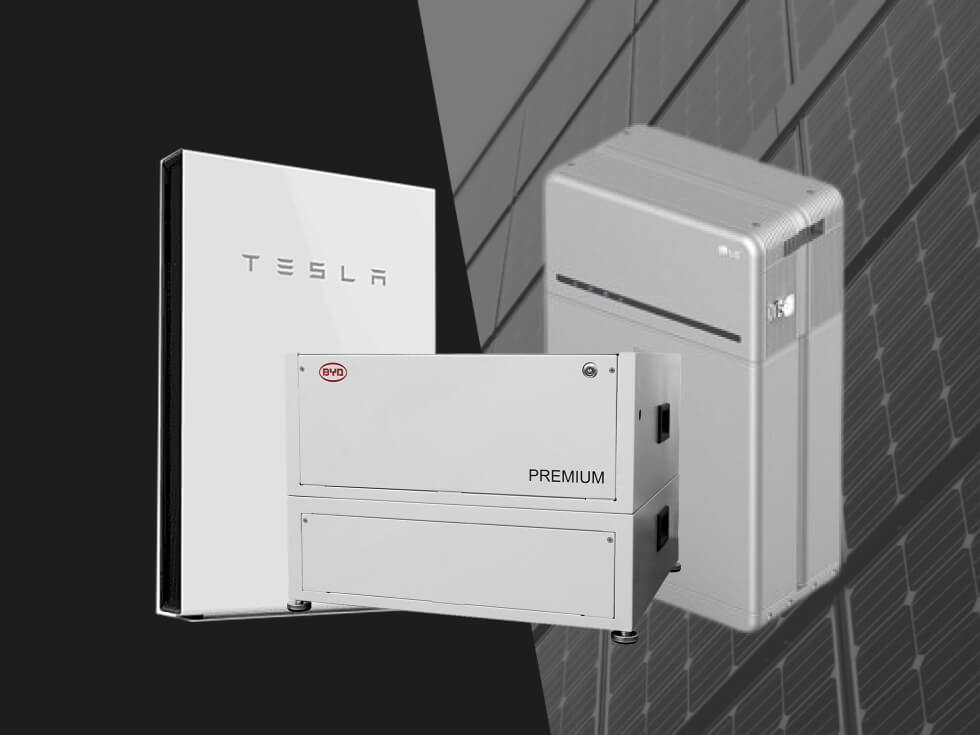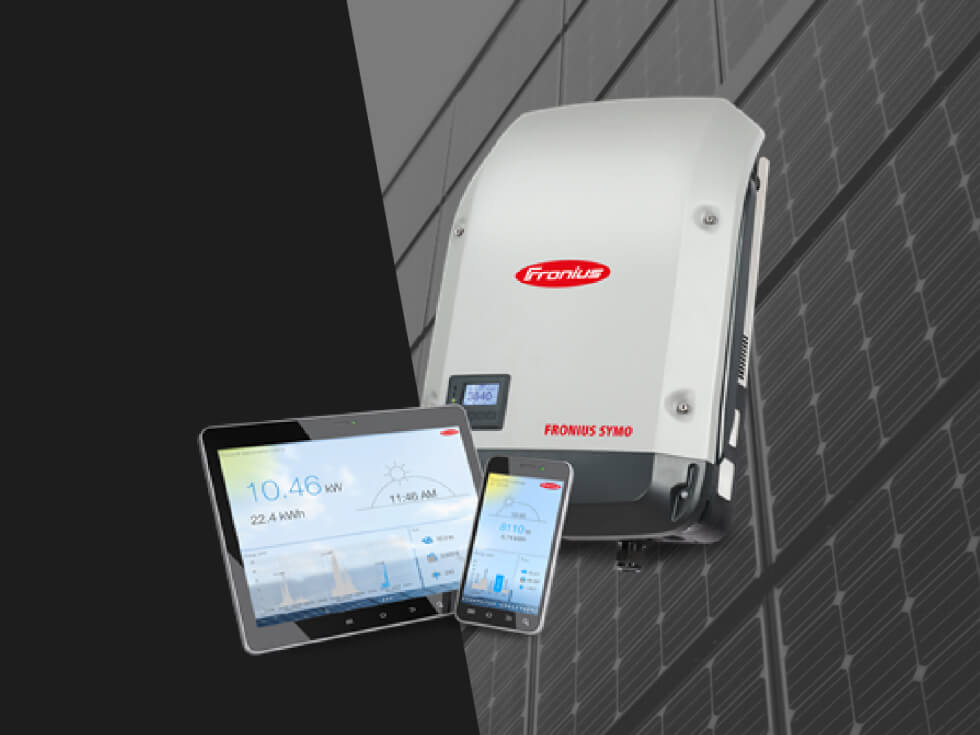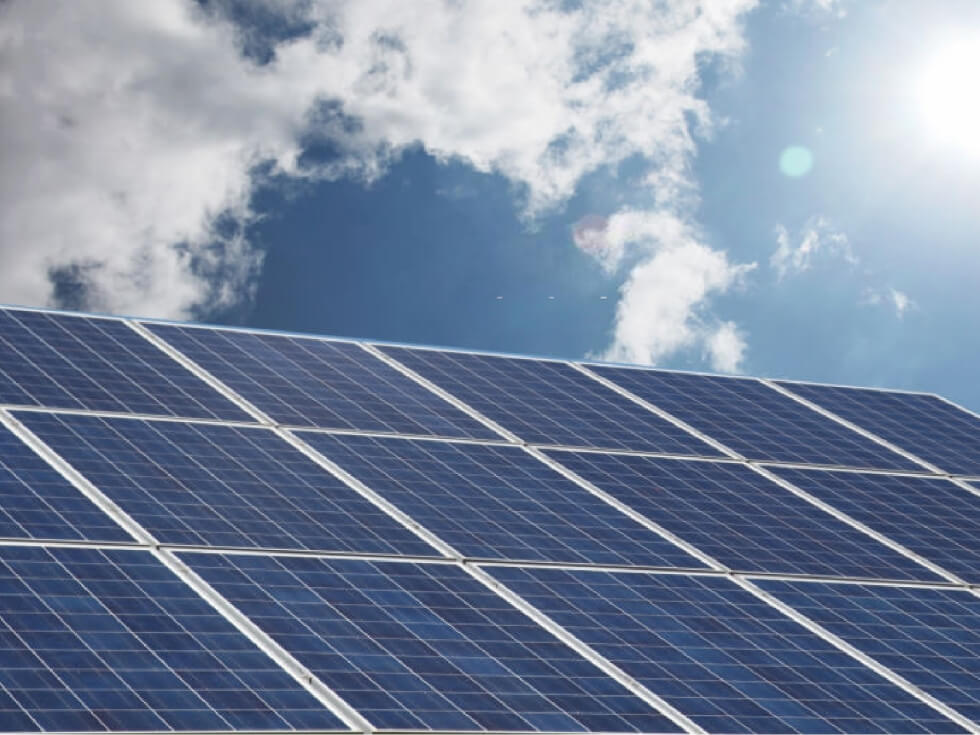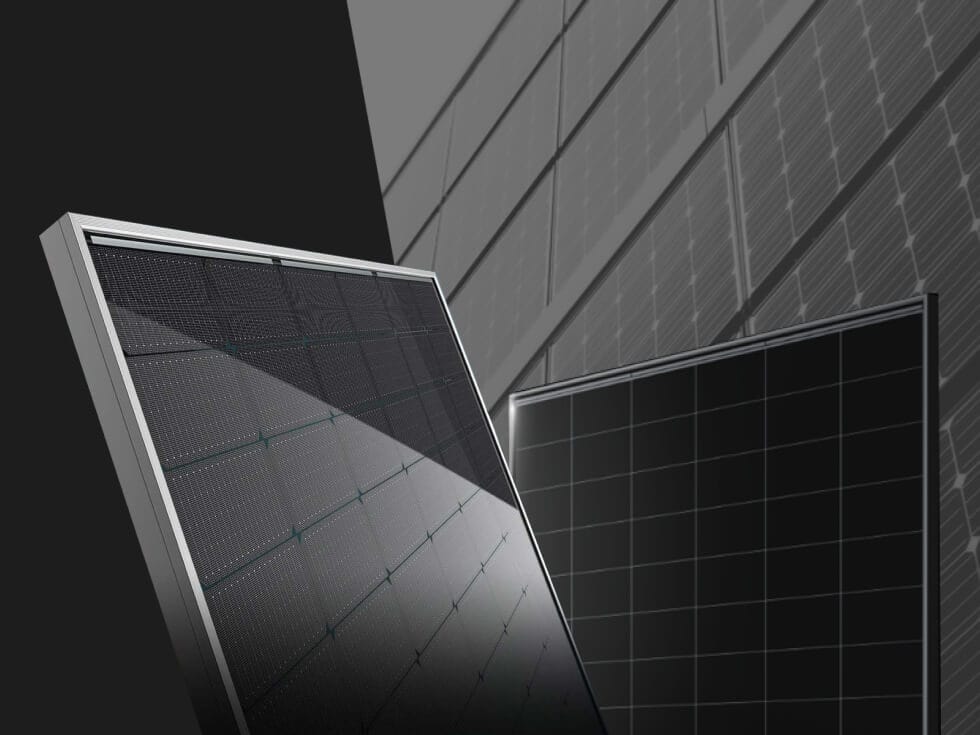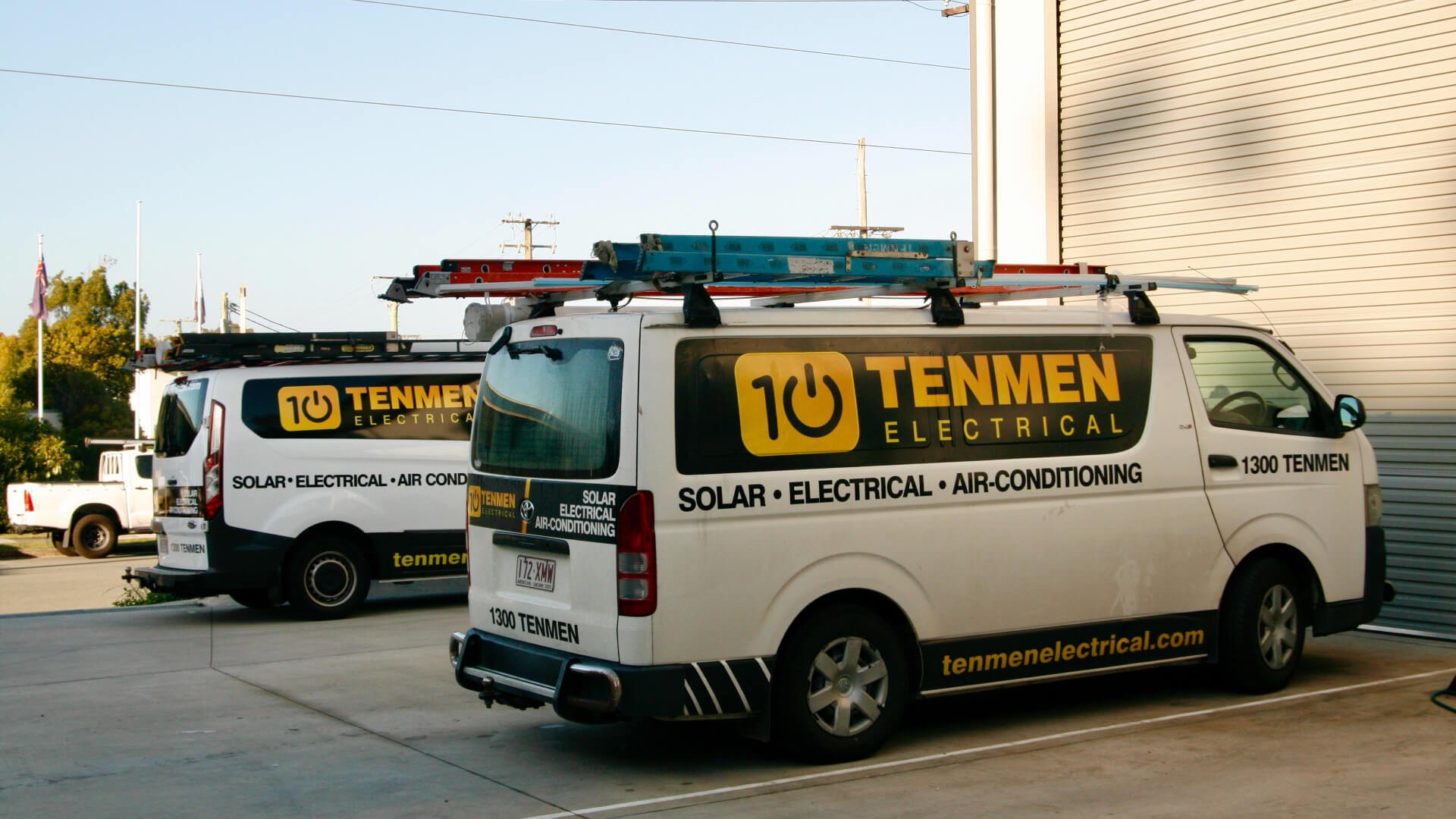Did you know that the global solar power capacity exceeded 760 gigawatts in 2020, rivalling the combined installed capacity of all other renewable energy sources? This astonishing figure underscores the monumental impact solar energy is having on the pursuit of sustainable power solutions.
As we transition towards more sustainable practices, let’s compare solar energy to other renewable energy types. Solar power boasts numerous advantages, including higher efficiency, lower maintenance requirements, and minimal environmental impact.
Unlike wind energy, which demands extensive upkeep and incurs wheeling charges, solar panels offer zero noise pollution and easier maintenance. Furthermore, solar energy seamlessly integrates with its surroundings, unlike hydropower, which can disrupt ecosystems. Compared to biomass energy, solar panels exhibit superior efficiency and do not emit harmful organic compounds.
With the right incentives and advancements in technology, solar energy stands out as a leading solution for both residential and commercial sectors.
Key Takeaways
- Solar power capacity surpassed 760 gigawatts globally in 2020.
- Solar energy offers higher efficiency compared to other renewable energy types.
- Maintaining solar panels is simpler and less costly than wind energy solutions.
- Solar panels have minimal environmental impact, unlike hydropower.
- Solar panels are more efficient and cleaner than biomass energy.
- Technological advancements and incentives are enhancing solar energy’s viability.
Solar Energy: Advantages and Challenges
Solar energy has become a forerunner in the realm of renewable energy technologies, offering a myriad of advantages while presenting certain challenges that need to be addressed. As we delve into the specifics, let’s look at both the benefits and limitations associated with this eco-friendly power source.
Key Benefits of Solar Panels
One of the prominent advantages of solar panels is their capacity to harness photovoltaic power, which is an abundant and inexhaustible resource. By converting sunlight into electricity, they significantly reduce reliance on fossil fuels, promoting energy independence and substantial cost savings over time. Installation of solar panels can also lead to job creation, contributing to economic development within the renewable energy sector. Moreover, the environmental impact is minimal since photovoltaic power generation does not emit greenhouse gases, making it a clean and sustainable energy solution for various applications.
Challenges and Limitations
Despite the numerous benefits, there are several challenges associated with solar energy. One of the primary concerns is the high initial installation costs of solar panels, which can deter some individuals and businesses from adoption. Additionally, the efficiency of solar panels is highly dependent on geographic location and weather conditions, making it less viable in regions with limited sunlight. Nonetheless, ongoing advancements in renewable energy technologies continue to address and mitigate these issues, enhancing the overall feasibility of integrating solar energy into residential and commercial properties.
Solar Energy vs Wind Energy
When comparing the differences between solar and wind energy, it’s crucial to consider various factors including efficiency, output, installation, and maintenance. Both energy sources contribute significantly to clean energy but have distinct characteristics that influence their viability and implementation.

Efficiency and Output
Solar panel efficiency varies by type. Monocrystalline panels, for instance, often achieve efficiency rates surpassing 20%, while other types might offer moderate efficiency. Wind energy’s efficiency is strongly affected by factors such as turbine design and location. While both renewable sources aim to maximise clean energy output, their efficacy depends on different variables like weather conditions and geographic suitability.
Installation and Maintenance
Solar panel installations present various long-term economic benefits due to minimal maintenance requirements and no fuel costs. In contrast, wind energy involves higher operational costs mainly because of maintenance needs and the infrastructure required. Solar installations, with their ease of integration, offer a more straightforward solution for households and businesses seeking sustainable energy alternatives.
| Comparison Factor | Solar Energy | Wind Energy |
|---|---|---|
| Efficiency Rates | High (up to 20%+) | Variable (depends on turbine design & location) |
| Maintenance Costs | Low | High |
| Installation Effort | Moderate | Extensive |
| Fuel Costs | None | None |
| Geographic Dependence | Less dependent | Highly dependent |
Solar Energy vs Hydropower
When evaluating the environmental impact and cost considerations of solar panels versus hydropower, the distinctions are clear and noteworthy. Both forms of alternative energy present unique attributes that influence their viability and sustainability.

Environmental Impact
Solar panels generally exhibit a lower environmental footprint compared to hydropower. Unlike dams, which may disrupt wildlife migration and alter waterways, solar installations are more benign, avoiding significant ecosystem disturbances. As a sustainable energy source, solar energy contributes minimally to land degradation and does not necessitate substantial alterations to the environment, thereby preserving biodiversity.
Cost Considerations
The cost implications of integrating solar energy into households and businesses reveal both high initial investments and long-term savings. While the upfront cost can be substantial, solar panels incur lower operation and maintenance expenses over time. Hydropower, by contrast, demands considerable capital for construction and ongoing maintenance due to the complexities of managing water resources.
| Comparison Factor | Solar Energy | Hydropower |
|---|---|---|
| Initial Investment | High | Very High |
| Operation and Maintenance Costs | Low | Moderate to High |
| Environmental Impact | Minimal Disruption | Significant Ecosystem Alteration |
Solar Energy vs Biomass Energy

As we evaluate green energy options, the comparison between solar and biomass energy reveals critical distinctions in efficiency and environmental impact. Both serve as valuable contributors to eco-friendly energy solutions, yet they diverge significantly in their operational efficacy and ecological footprint.
Efficiency Levels
Solar energy demonstrates a distinctly higher efficiency compared to biomass energy. Some solar panels can achieve efficiency levels exceeding 20%, a benchmark that biomass energy struggles to meet. Moreover, continuous advancements in photovoltaic technology further enhance solar power’s capability to efficiently convert sunlight into usable electricity, suggesting that the efficiency levels are likely to continue increasing.
Environmental Impact
Solar energy’s eco-friendly credentials are underscored by its lack of emissions during operation. Unlike biomass energy, which involves the combustion of organic matter, solar panels generate power without emitting pollutants such as carbon monoxide or nitrogen oxides. Additionally, the transportation of biomass often relies on oil-based energy, adding to its environmental impact. By contrast, solar energy emerges as a cleaner, more sustainable green energy solution.
| Aspect | Solar Energy | Biomass Energy |
|---|---|---|
| Efficiency | High (up to 20%+) | Significantly lower |
| Emissions | None | Carbon monoxide, nitrogen oxides |
| Environmental Impact | Minimal | Requires oil-based transportation energy |
Solar Energy vs Other Renewable Energy Sources
When we conduct a clean energy comparison, it’s evident that solar power surpasses other renewable energy sources in several key areas.
One of the primary benefits of solar energy is its declining cost, driven by advancements in technology and increased production scale. Unlike fossil fuels, which have plateaued in terms of innovation, solar power continues to benefit from rapid technological enhancements, making it more affordable and accessible to diverse markets globally.
The environmental impact of solar energy is another significant advantage. Solar panels generate electricity without emitting noise or greenhouse gases, and their low maintenance requirements mean reduced energy and material consumption over their lifespan.
Support from global initiatives and subsidies has also accelerated the adoption of solar energy. These efforts not only bolster the market potential for solar power but also highlight its viability and advantages over other types of renewable energy. Various energy markets have recognised solar power’s benefits, promoting widespread adoption that further drives down costs.
To provide a comprehensive clean energy comparison, let’s take a closer look at how solar energy measures up against other renewable sources.
| Criteria | Solar Energy | Wind Energy | Hydropower | Biomass Energy |
|---|---|---|---|---|
| Efficiency | High, with modern panels achieving over 20% | Variable, depending on turbine design and location | Moderate, reliant on consistent water flow | Low, generally below 19% |
| Environmental Impact | Low, no emissions and minimal maintenance | Low, but can affect bird populations | Moderate, significant ecological disruption from dam construction | Moderate, involves emissions and land use for biomass growth |
| Cost | Decreasing, due to innovation and scale | Stable, with high maintenance costs | High initial cost, lower operation and maintenance costs | Variable, depending on biomass production and transport costs |
As this clean energy comparison reveals, solar energy has unique advantages that set it apart in the spectrum of renewable power solutions. Its efficiency, cost-effectiveness, and low environmental impact make it a compelling choice for both residential and commercial use.
Cost and Economic Impact of Solar Energy
The implementation of solar energy systems involves initial installation costs that are perceived as a significant investment. However, these expenses can be notably offset by the long-term financial benefits attributable to solar power.
Initial Installation Costs
While the upfront costs of installing solar panels may seem substantial, it is essential to consider the broader financial perspective. These initial expenses are often mitigated by government incentives and subsidies, which make solar power an attractive option for many homeowners and businesses. Additionally, the decreasing costs of solar technology have made it increasingly accessible to a larger segment of the population.
Economic Benefits
One of the primary advantages of solar energy is the potential for significant cost savings on energy expenses. Once installed, solar panels require minimal maintenance, thereby reducing overall operational costs. Repair and solar panel cleaning services are widely available. Furthermore, the economic impact of solar energy extends beyond individual savings. The growth of the renewable energy sector, driven by solar power, has led to job creation and stimulated economic development. By investing in solar energy, we contribute to a larger economic framework that promotes sustainability and resilience.
Environmental Benefits of Solar Energy
Solar energy is undeniably one of the most eco-friendly power sources available today. By generating electricity without emitting harmful pollutants, solar panels play a crucial role in climate change mitigation. This clean energy solution helps us to significantly reduce our carbon footprints, thereby supporting global efforts to combat climate change.
Moreover, integrating solar energy into our power grid promotes the use of green energy solutions, driving sustainable development. By adopting solar technology, we can lessen our reliance on non-renewable resources, leading to a greener future. As solar energy infrastructure continues to evolve, it becomes an increasingly viable option for both residential and commercial use.
Why Solar Energy is Ideal for Australia
Australia’s vast landscape and abundant sunlight make it a prime location for solar energy. Solar on the Sunshine Coast is a particularly great fit. The nation’s dedication to renewable energy sources is evident in the various initiatives supporting the transition to greener power solutions.
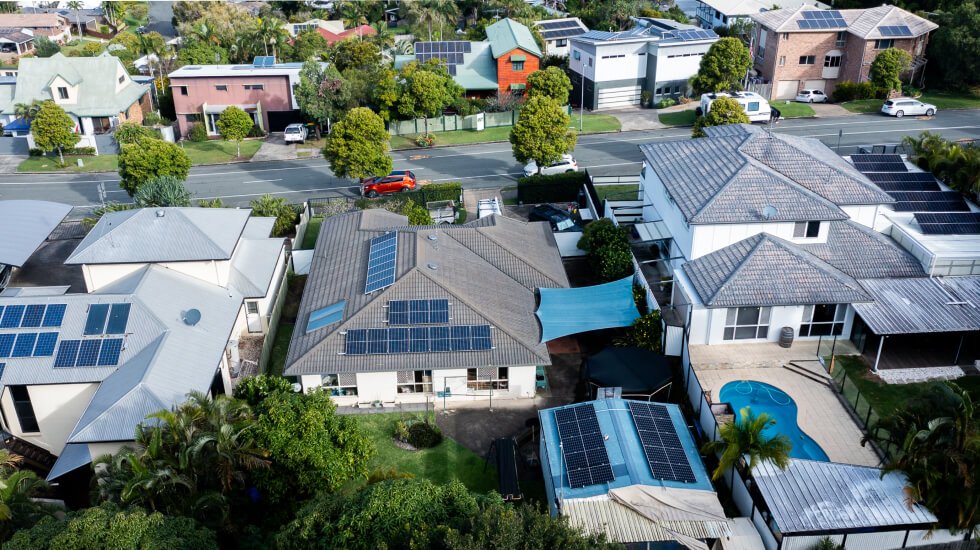
Geographical Suitability
Australia boasts one of the highest solar radiation levels globally, providing an excellent foundation for harnessing solar energy. With extensive sunny periods across its regions, the country is well-positioned to maximise the efficiency of solar panel installations.
Government Incentives
The Australian government plays a crucial role in promoting solar energy in Australia through a range of subsidies and incentives. Programs like feed-in tariffs and rebates significantly lower the cost barrier for households and businesses, fostering broader adoption of solar power. These financial supports not only help with initial installation costs but also encourage long-term energy independence for many Australians.
Let’s take a look at some of the specific government incentives available:
| Incentive Type | Details | Impact |
|---|---|---|
| Feed-in Tariff | Offers payments to solar panel owners for the excess electricity they generate and return to the grid. | Encourages local energy production and financial savings. |
| Rebates | Provides upfront financial aids for solar panel installation costs. | Reduces the initial investment needed for solar systems. |
| Small-scale Technology Certificates (STCs) | Serves as a financial incentive by offsetting the cost of installing eligible solar systems. | Promotes the adoption of renewable energy. |
These initiatives highlight the comprehensive approach Australia takes towards integrating solar energy into everyday life, supporting not just affordability but also long-term sustainability and energy independence.
In Closing
The adaptability and versatility of solar panels make them an excellent choice for a broad range of environments, particularly here in Australia, where sunlight is abundant. This positions solar energy as a highly viable option for both residential and commercial applications. Additionally, the backing of government incentives and subsidies simplifies the transition to this green energy source, making it more accessible to the average household and business.
In conclusion, our comparative analysis demonstrates that solar energy is not only a cleaner and more sustainable energy solution but also offers economic viability and resilience. It stands as a pivotal component in the global shift towards renewable energy, promising a brighter, more sustainable future. Therefore, our dedication to embracing solar energy and other renewable solutions is part of our commitment to creating a more sustainable planet for future generations.



